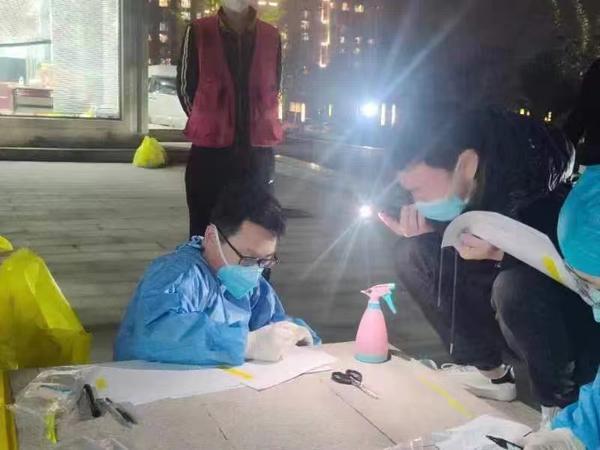Ladies and Gentlemen,
Good evening, and welcome to this important gathering. Today, I stand here before you with a heavy heart but also a glimmer of hope, as we collectively reflect on the unprecedented challenges posed by the COVID-19 pandemic. As we embark on this three-minute journey, let us not just recount the hardships but also celebrate the resilience and solidarity that have emerged from this dark chapter in our history.
Opening Remarks: The Unfolding Tragedy
The COVID-19 pandemic, an uninvited guest that has reshaped our world in ways we could never have imagined, has taught us many lessons. It began as a mere virus, a microscopic entity that quickly transformed into a global health crisis, disrupting economies, education systems, and daily lives. We've witnessed the rapid spread of the virus, its devastating impact on healthcare systems, and the unfathomable loss of lives. In just a few short months, the world went from being a buzzing hive of activity to a desolate landscape, where silence echoed in the streets once teeming with life.
The Impact on Health Systems and Communities
The first and foremost impact of COVID-19 has been on our health systems. Hospitals became battlefields, with healthcare workers, the true heroes of this time, bravely fighting on the frontline against an invisible foe. They risked their own lives to save others, a testament to human compassion at its finest. Yet, the strain on healthcare resources was immense, leading to shortages of personal protective equipment (PPE), ventilators, and even basic medications. This not only affected the treatment of COVID patients but also compromised the care for those with pre-existing conditions or requiring emergency services.
Communities were not spared either. The virus spread like wildfire through crowded living conditions, lack of access to clean water and sanitation, and inadequate healthcare facilities. The elderly and those with underlying health issues bore the brunt of this pandemic, their vulnerability highlighting the need for a more equitable and inclusive healthcare system.
Economic Disruption and Unemployment
The economic fallout from COVID-19 has been nothing short of catastrophic. Businesses closed their doors, job losses skyrocketed, and entire industries teetered on the brink of collapse. The global economy took a hit from which it is still recovering. Small businesses, the backbone of many communities, struggled to survive without the steady flow of customers or the ability to access loans and financial aid. The self-employed and gig workers found themselves in a precarious position, with no safety net to fall back on.
Unemployment rates soared to unprecedented levels, with young people and low-skilled workers hit hardest. The fear of losing income and the uncertainty of the future loomed large over families' heads, exacerbating mental health issues and exacerbating poverty. The pandemic exposed the fragility of our economic systems and highlighted the need for more resilient and inclusive policies that can withstand such shocks.
The Role of Governments and International Cooperation
In times of crisis, leadership is crucial. Governments around the world have taken various measures to contain the spread of the virus, from lockdowns to travel bans and subsidies for businesses and individuals. However, the effectiveness of these measures varied greatly depending on resources, planning, and political will. Some countries were able to flatten the curve more effectively than others, demonstrating the importance of early detection, testing, tracing, and vaccination efforts.
International cooperation has been a bright spot amidst this darkness. Nations have shared medical supplies, expertise, and vaccines in an effort to mitigate the spread globally. The World Health Organization (WHO) played a pivotal role in coordinating this global response, emphasizing science-based approaches and solidarity among member states. However, there are still challenges ahead, particularly in accessing vaccines equitably across different countries and populations.
The Role of Technology in Our Response
Technology has been both a blessing and a curse during this pandemic. On one hand, it has enabled remote work and learning, keeping essential services running while minimizing physical contact. Telemedicine has bridged the gap between patients and healthcare providers, ensuring continued access to care even in remote areas. Digital tools have facilitated information sharing and communication among governments, health authorities, and citizens.
On the other hand, technology has also fueled misinformation and disinformation at an alarming rate. Fake news about cures, vaccines, and even the very nature of the virus has spread like wildfire on social media platforms. This has undermined trust in institutions and delayed effective responses to the pandemic. It highlights the need for stronger regulation and fact-checking mechanisms to ensure that reliable information reaches the public in a timely manner.
The Silver Lining: Resilience and Solidarity
Despite the darkness that COVID-19 has brought upon us, there have been moments of light that have warmed our hearts and given us hope for a better future. We've witnessed incredible acts of kindness from strangers coming together to support each other during this time of need. From community kitchens delivering meals to those in need to volunteers assisting in vaccination drives, humanity has shown its best side during this crisis.
The pandemic has also prompted us to reevaluate our priorities and values. We've seen a surge in environmental consciousness as people embrace sustainable lifestyles and call for action on climate change. The importance of science and research has been reaffirmed as we've seen how quickly new treatments and vaccines have been developed through collaboration between researchers worldwide.
Looking Ahead: Building Back Better
As we gradually emerge from this pandemic, it is crucial that we learn from our experiences and use them to build a better future. We must invest in our healthcare systems to ensure they are equipped to handle future pandemics effectively. This includes improving access to healthcare for all, investing in public health infrastructure, and promoting research into emerging infectious diseases.
Economic policies must prioritize resilience and inclusivity to ensure that no one is left behind in our recovery efforts. This includes supporting small businesses, providing adequate unemployment benefits, and fostering digital inclusion to bridge the digital divide.
Moreover, we must address the root causes of inequality that have been exacerbated by this pandemic – from lack of access to education and healthcare to systemic racism and discrimination. Only by addressing these issues can we create a more just and equitable society that is better prepared for future crises.
Lastly, as we continue to navigate this pandemic together, let us not forget the importance
转载请注明来自爬爬百科,本文标题:《应对COVID-19疫情,三分钟英语演讲》












 京ICP备11000001号
京ICP备11000001号
发表评论